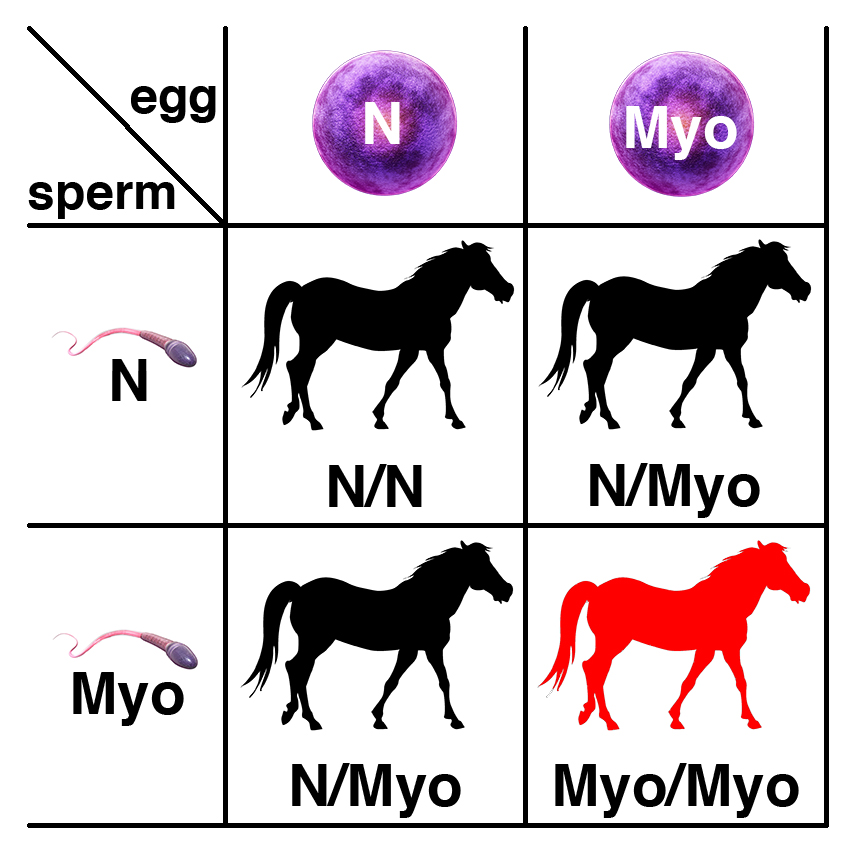| Contents |
|---|
| Myotonia |
| Summary |
| Understanding the Results |
| Disease Name and Genes |
| Inheritance |
Myotonia
Summary
Myotonia is a neuromuscular disorder that slows the relaxation of muscles after voluntary contraction or electrical stimulation. An inherited form of Myotonia was seen in a New Forest pony, which displayed symptoms including difficulty rising to its feet, abnormal vocalization, stiff gait, and rigidity of limbs, neck, and trunk. There is no effective treatment.
Date of Last Update: 08/02/2016
Results
Understanding the Results
Results of the genetic test for Myotonia are presented as shown below.
| Myotonia | ||
|---|---|---|
| N/N | Clear | This horse tested negative for Myotonia. |
| N/Myo | Carrier | Both the normal and mutant alleles are present. This horse is positive for the Myotonia mutation but will not develop symptoms. |
| Myo/Myo | Affected | This horse carries two copies of the Myotonia mutation and will develop the disease. |
Disease Name and Genes
Myotonia is caused by an A to C substitution in the skeletal muscle chloride channel gene CLCN1, resulting in a missense mutation in which an Aspartic Acid (D) codon is changed to an Alanine (A) codon at position 592 (CLCN1-D592A).
Inheritance
Myotonia resulting from the CLCN1-D592A variant shows a recessive mode of inheritance. The recessive allele is abbreviated here as Myo, with the dominant wild-type allele abbreviated as N.

Carriers of the recessive allele (N/Myo) have no symptoms of the disease. If two carriers are bred, each foal has a 25% chance of having two copies of the normal allele (N/N), a 50% chance of being a carrier (N/Myo), and a 25% chance of being affected (Myo/Myo).

If a carrier of the recessive allele (N/Myo) is bred to a normal horse (N/N), each foal has a 50% chance of having two copies of the normal allele (N/N) and a 50% chance of being a carrier (N/Myo).





